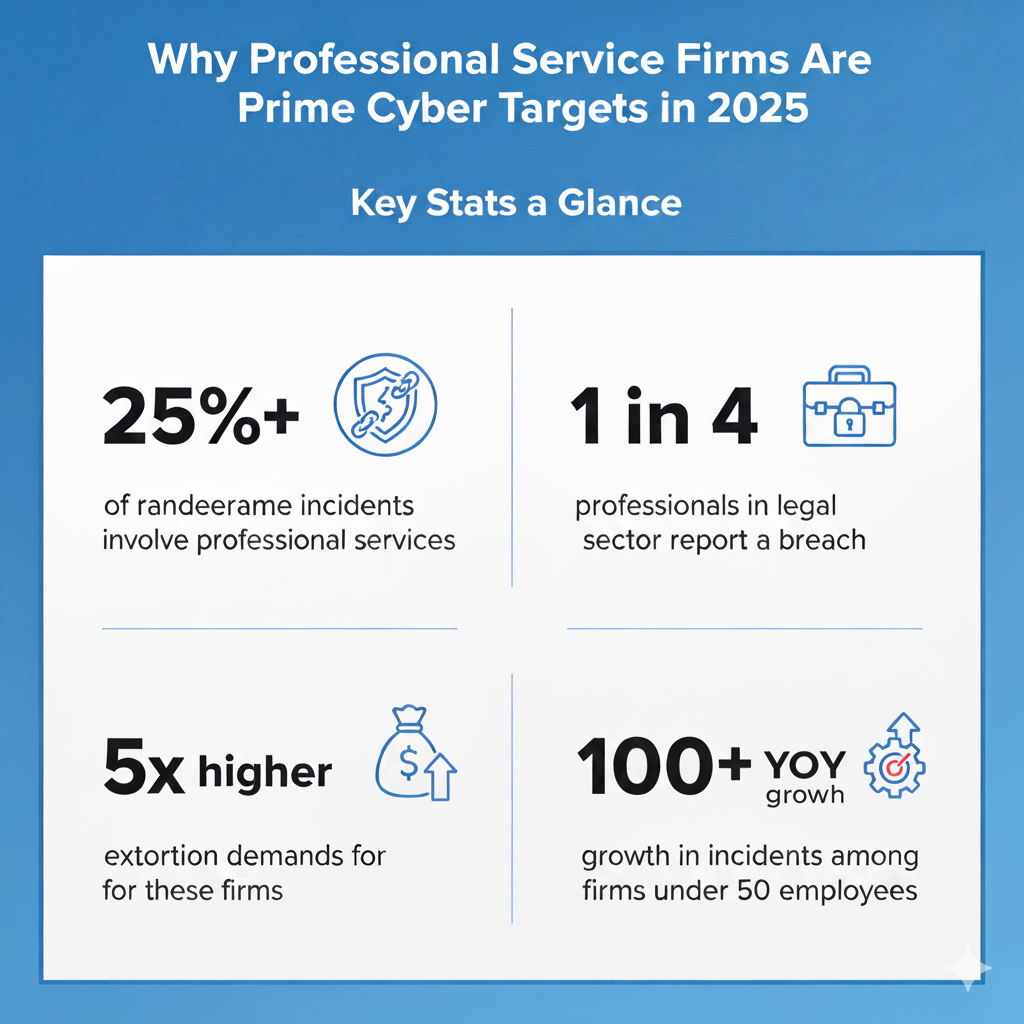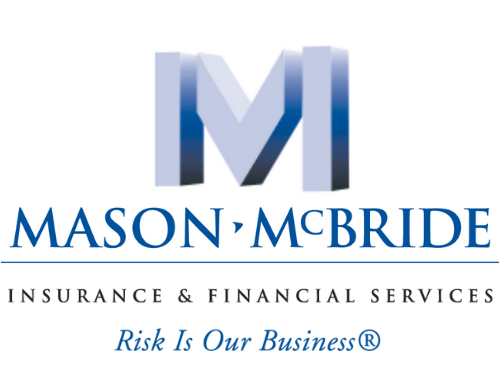Professional service organizations manage confidential records, financial information, and email-driven workflows, conditions that continue to make them high-value targets for cybercriminals.
Threat activity has evolved from broad financial data theft to targeted intrusions aimed at extracting sensitive client information. Malware, credential theft, and business email compromise remain among the most common entry points.
Why Attackers Focus on Firms That Manage Sensitive Information
Carriers continue to report increased claims frequency among firms that:
- Manage client records
- Hold intellectual property details
- Process financial transfers
- Rely on remote or hybrid work environments
Smaller organizations can be particularly vulnerable due to limited cybersecurity resources. Attack tactics aren’t necessarily new, they’re more refined, automated, and widely available.

Key Industry Indicators
- Although professional services represent 14% of U.S. businesses, they account for over 25% of ransomware claims.
- Breaches among firms with fewer than 50 employees more than doubled year-over-year in recent industry surveys.
- One in four professionals in the legal sector reported experiencing a cybersecurity incident in the last 12 months.
- Carriers report that extortion demands in professional services can exceed the average ransom by up to 5x.
What Insurance Carriers Are Reporting
Carrier partners observe that law firm breaches involve highly sensitive materials, class action details, settlement information, and privileged communications. This level of exposure often drives higher extortion demands than in other industries.
Due to reputational, regulatory, and client-relationship considerations, many firms elect to resolve incidents quickly, which can influence loss outcomes and claims costs across the sector.
Notable Trends Across Professional Services
- Multiple ransomware claims exceeded $5 million in the last reporting year.
- Small and mid-sized firms show the highest attack frequency, often tied to gaps in basic controls.
- Attackers increasingly target email systems and client communication workflows to facilitate payment fraud or unauthorized access.
Similar trends are appearing in other sectors with distributed workforces, including staffing agencies, where attackers often target email workflows and candidate data.
Cyber Insurance Underwriting Is Tightening
Cyber insurance underwriting has become more rigorous as ransomware and data breach incidents increase. Many carriers now require:
- Multi-Factor Authentication (MFA) for email, remote access, and admin accounts
- Password management protocols and privileged access controls
- Endpoint detection and response (EDR) solutions
- Regular data backups stored offline or in immutable formats
Premiums have fluctuated widely, some firms see moderate increases, while others experience significant adjustments depending on their controls.
Additional provisions may include:
- Minimum ransomware coinsurance percentages
- Sub-limits based on security maturity
- Exclusions for outdated systems or unpatched vulnerabilities
How Cyber Insurance Helps Firms Respond to an Incident
Cyber insurance can help firms manage the financial and operational fallout from an attack. Depending on the policy, coverage may include:
- Breach investigation and forensic support
- Legal guidance and regulatory response
- Client notification services
- Credit monitoring
- Public relations and crisis management
- Assistance with system restoration
Because policies vary, firms should review how exclusions, sub-limits, and coinsurance affect coverage.
FAQs
Common incidents include phishing, ransomware, business email compromise, credential theft, and unauthorized access to client information.
They maintain sensitive data, rely on email-driven workflows, and often work under tight deadlines, conditions that attackers can exploit.
Firms may face financial loss, business disruption, reputational concerns, and regulatory response requirements depending on the nature of the breach.
Strengthening Cyber Resilience
Professional service firms remain high-value targets due to the information they manage. While cyber insurance helps support recovery efforts, it should be paired with training, modern security controls, and ongoing risk assessments.
Related Topics
- Hidden Policy Language in Your E&O Insurance
- Navigating Cyber Insurance Exclusions
- Subcontractor Insurance: Strategies for Staffing Agencies
Article By Jamie Parry
